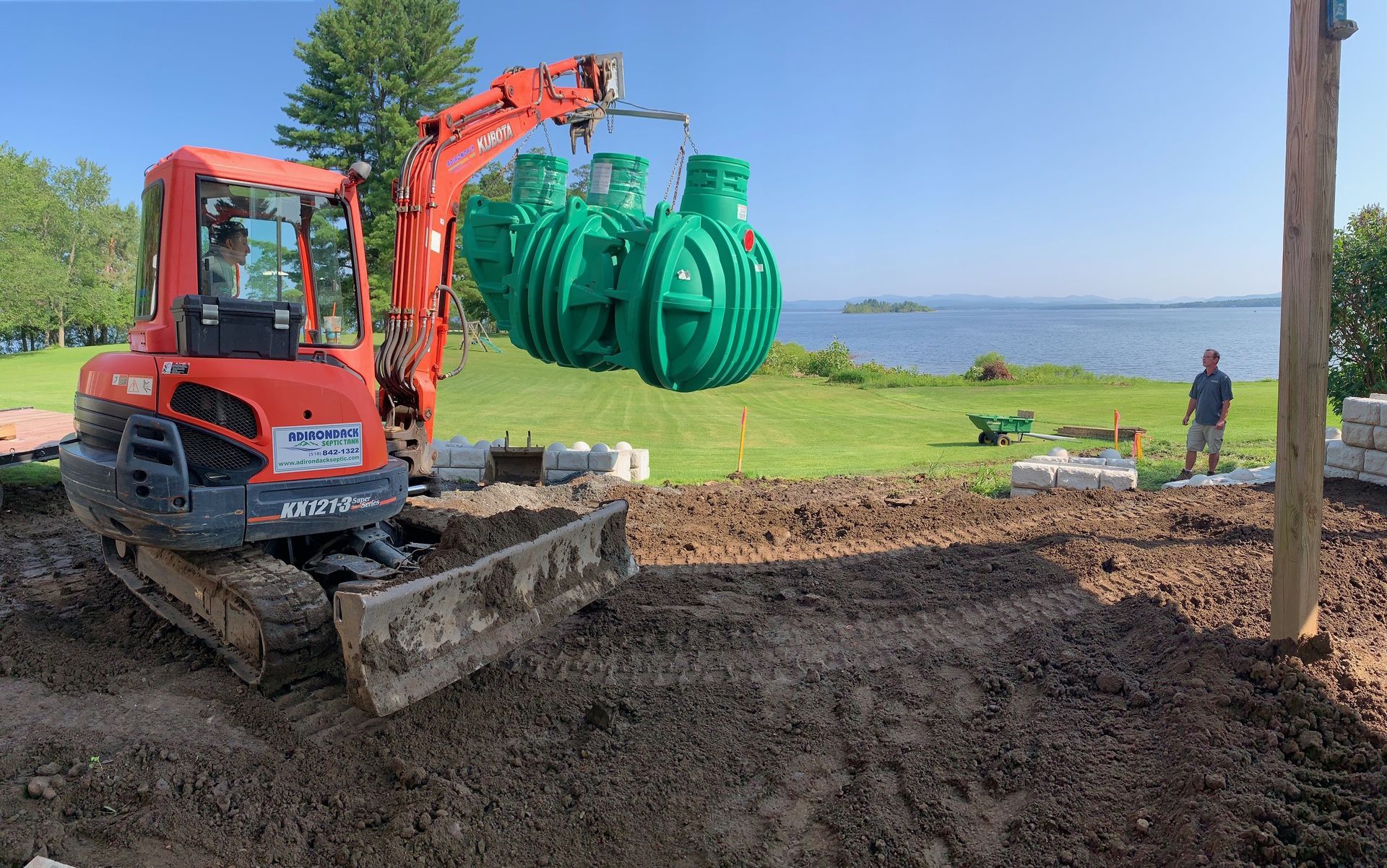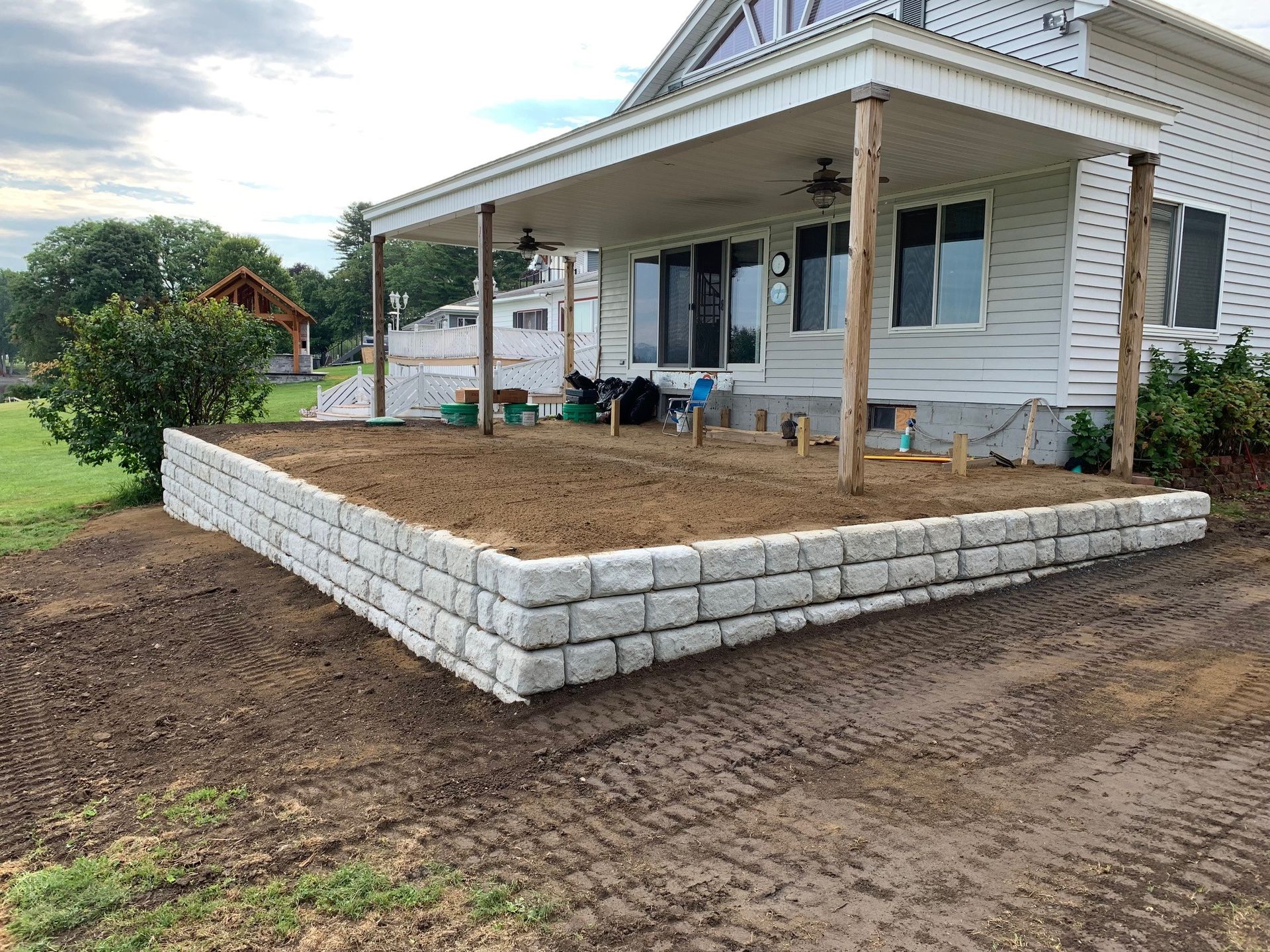The Excavating New Jersey LLC Blog
Excavating New Jersey LLC Blog
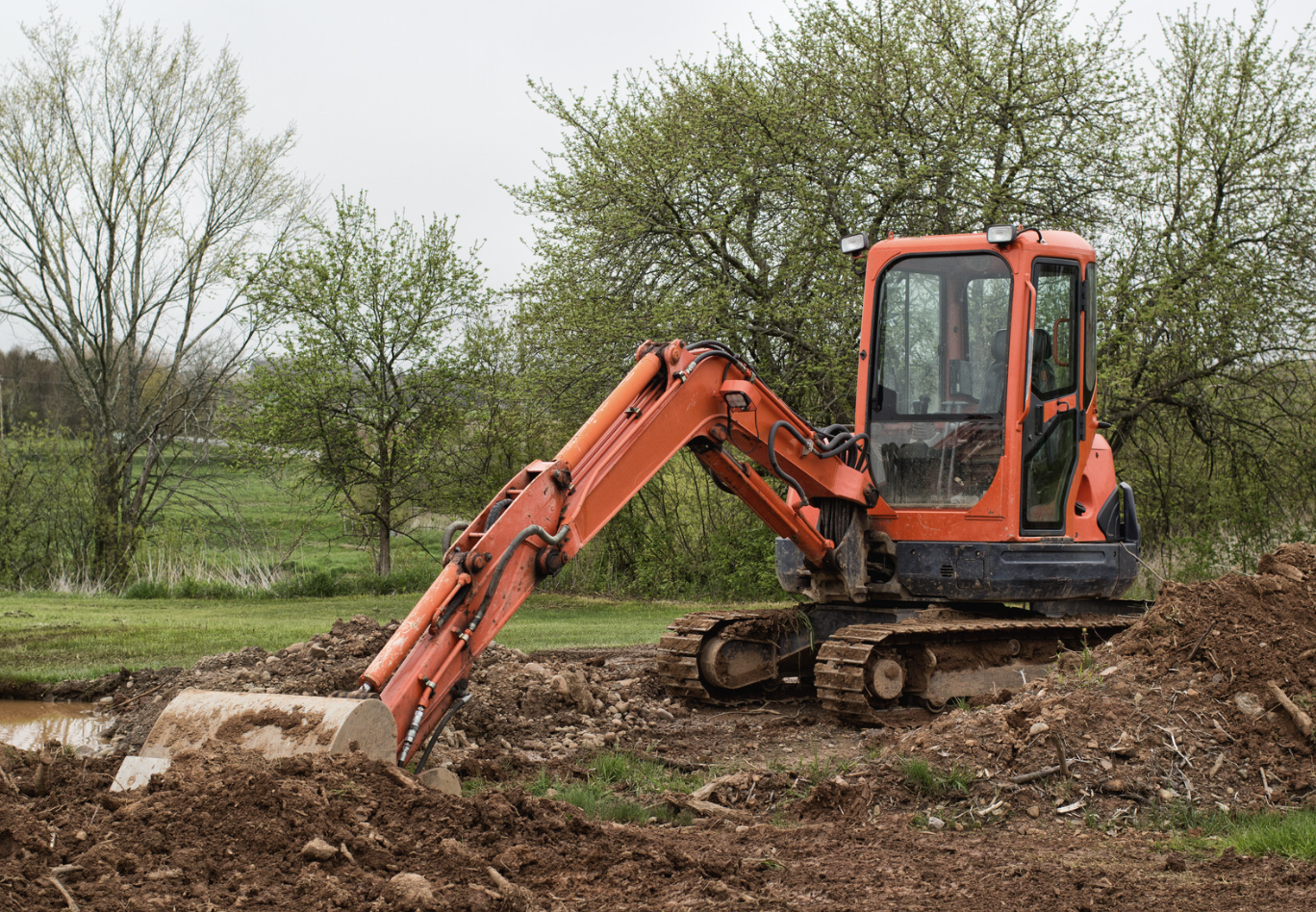
By Pamela Brigante
•
18 May, 2023
When it comes to excavation projects, choosing the right contractor is crucial to ensure a successful and efficient outcome. Whether you're planning a residential or commercial project, finding a reputable and reliable excavation company can save you time, money, and headaches in the long run. Our team at Excavating New Jersey LLC we will guide you through the essential steps to help you select the right excavation company for your specific project needs. 1. Assess Your Project Requirements Before beginning your search for an excavation company, it's important to assess your project requirements. Determine the scope, size, and complexity of the project, as well as any specific expertise or equipment that may be required. Understanding your project needs will help you narrow down your options and find a contractor with relevant experience. 2. Research and Referrals It is so important that you do your homework and conduct thorough research to identify potential excavation companies in your area. Start by seeking recommendations from friends, family, or colleagues who have recently completed similar projects. Their firsthand experiences can provide valuable insights and recommendations. Additionally, browse online directories, check customer reviews, and visit the contractors' websites to evaluate their credibility and reputation. 3. Verify Credentials and Licenses When evaluating potential contractors, verify their credentials and licenses. Ensure that they hold the necessary permits and certifications required by local authorities. A reputable excavation contractor will have proper licensing, insurance coverage, and compliance with safety regulations. Request copies of their licenses and insurance policies to confirm their validity and coverage limits. 4. Experience and Expertise Evaluate the contractor's experience and expertise in handling projects similar to yours. Look for contractors who have a proven track record in executing projects of comparable size, complexity, and specifications. Consider the number of years they have been in the industry and the variety of projects they have successfully completed. An experienced contractor will possess the skills, knowledge, and problem-solving abilities to handle unforeseen challenges that may arise during the project. 5. Portfolio and References Review the contractor's portfolio and request references from previous clients. A reputable contractor will proudly showcase their past projects and provide references upon request. Reach out to these references to inquire about their experience working with the contractor. Ask about the contractor's professionalism, adherence to schedules, communication skills, and overall satisfaction with the completed work. Positive references indicate a contractor's reliability and commitment to delivering high-quality results. 6. Communication and Collaboration Effective communication and collaboration are essential for a successful excavation project. During the initial consultations with potential contractors, assess their responsiveness, willingness to listen to your requirements, and ability to provide clear explanations. A contractor who communicates effectively and demonstrates a willingness to collaborate will ensure that your project progresses smoothly and according to your expectations. 7. Cost and Contract Obtain detailed cost estimates from multiple contractors and compare them thoroughly. While cost is an important factor, it should not be the sole determining factor in your decision-making process. Consider the value offered by each contractor, including their reputation, expertise, and quality of work. Ensure that the estimates include all relevant aspects of the project, such as labor, equipment, materials, and any additional charges. Once you've selected a contractor, review the contract carefully before signing, ensuring that it includes project timelines, payment terms, warranties, and any specific provisions relevant to your project. With over 8000 projects successfully completed, our team at Excavating New Jersey LLC understands the importance of choosing the right excavation contractor for your project. This decision requires careful consideration and thorough evaluation. By assessing your project requirements, researching potential contractors, verifying credentials, and evaluating their experience, expertise, and communication skills, you can make an informed decision. Remember, investing time and effort in selecting the right excavating company upfront will ultimately lead to a successful excavation project that meets your expectations. Contact us for a FREE site evaluation and allow us to be the excavation company that can get the job done right the first time!
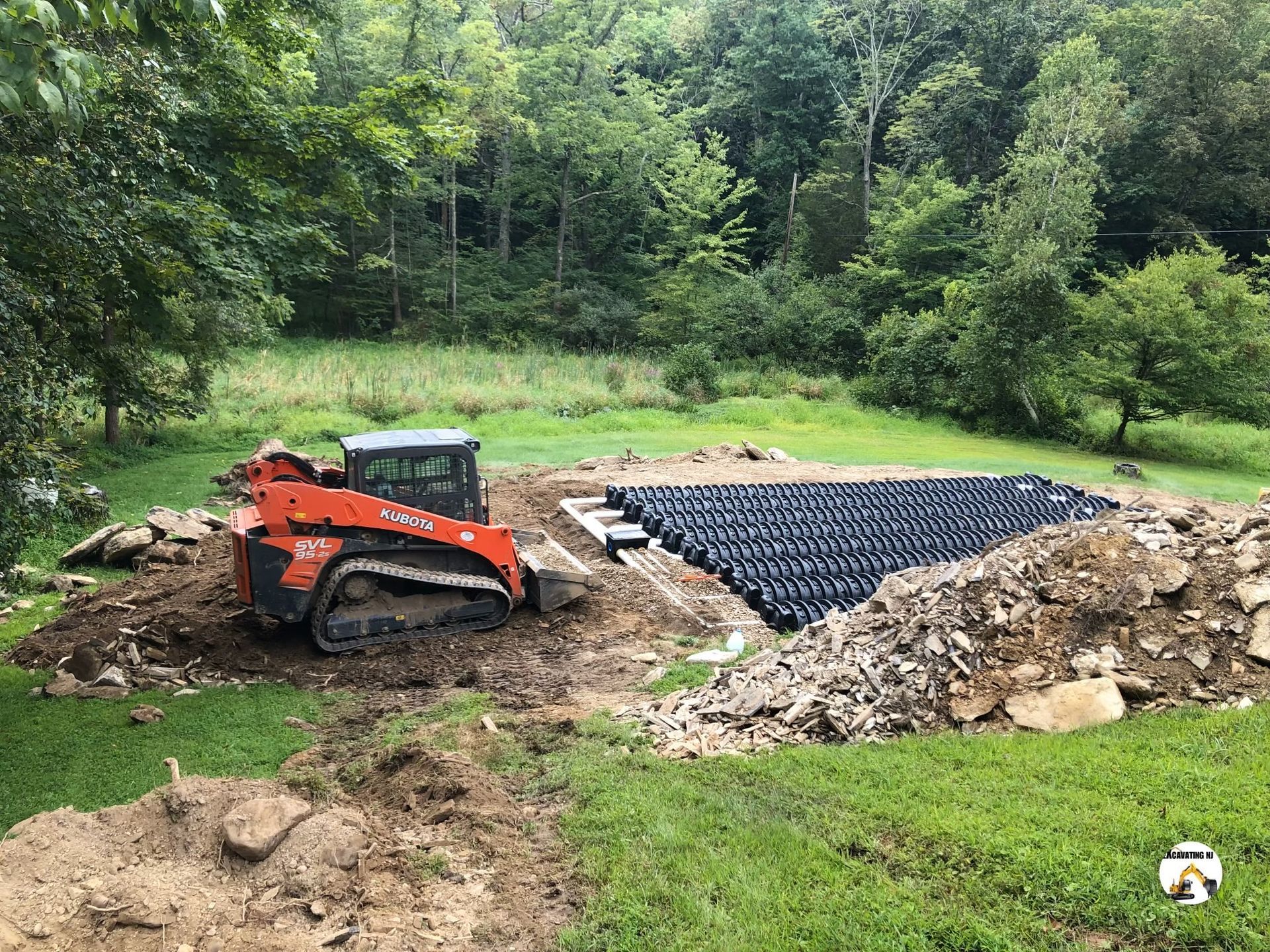
By Pamela Brigante
•
29 Apr, 2023
Your septic system is an essential component of your home's wastewater treatment system. It works by separating solids from liquids and allowing the liquid to flow into the drain field, where it is filtered through a layer of sand before being absorbed into the soil. While the sand may seem like a small part of the system, it plays a critical role in ensuring its proper functioning. Owner, Mike White explains why it's important to use good quality sand in your septic system and the consequences of using poor-quality sand. Proper Drainage One of the primary functions of sand in a septic system is to provide drainage. When wastewater enters the septic tank, solids settle to the bottom, while the liquid flows out into the drain field. The drain field is filled with a layer of sand, which acts as a filter to remove impurities from the wastewater as it percolates down into the soil. If the sand used in the drain field is of poor quality, it may not drain properly, which can lead to system failure. This can cause backups, unpleasant odors, and other issues that can be costly and time-consuming to fix. Clogging Prevention Poor-quality sand may contain high levels of silt or clay, which can lead to clogging. As wastewater flows through the system, these fine particles can accumulate and eventually block the flow of water. This can cause backups and other issues. In extreme cases, clogs can cause the system to fail, requiring expensive repairs or replacement. Using good quality sand that is free of these materials can prevent clogs and ensure that the system functions properly. Nutrient Absorption Septic sand also plays a role in absorbing nutrients from the wastewater. If the sand is of poor quality, it may not be able to effectively absorb nutrients, which can lead to contamination of the soil and groundwater. Over time, this can cause environmental damage and pose a threat to public health. Using good quality sand can help ensure that the system is able to effectively absorb nutrients and prevent contamination. Longevity Using poor-quality sand can shorten the lifespan of a septic system. Over time, clogs and other issues can cause damage to the system, which may require expensive repairs or replacement. Using high-quality sand that meets the necessary specifications can help ensure proper drainage, reduce the risk of clogs and contamination, and increase the longevity of the system. Using good quality sand in your septic system is crucial to its proper functioning and longevity. Good quality sand ensures proper drainage, prevents clogging, aids nutrient absorption, and extends the lifespan of the system. It's essential to choose a septic company that uses high-quality sand that meets the necessary standards for septic systems. By doing so, you can avoid costly repairs, ensure the proper functioning of your system, and protect the environment and public health. You can count on our team at Excavating New Jersey LLC to alway use good quality sand because we care about the longevity of your system and stand behind our work. Give us a call or send us a form fill to get a free estimate. We offer upfront free estimates and flat rate septic installation.
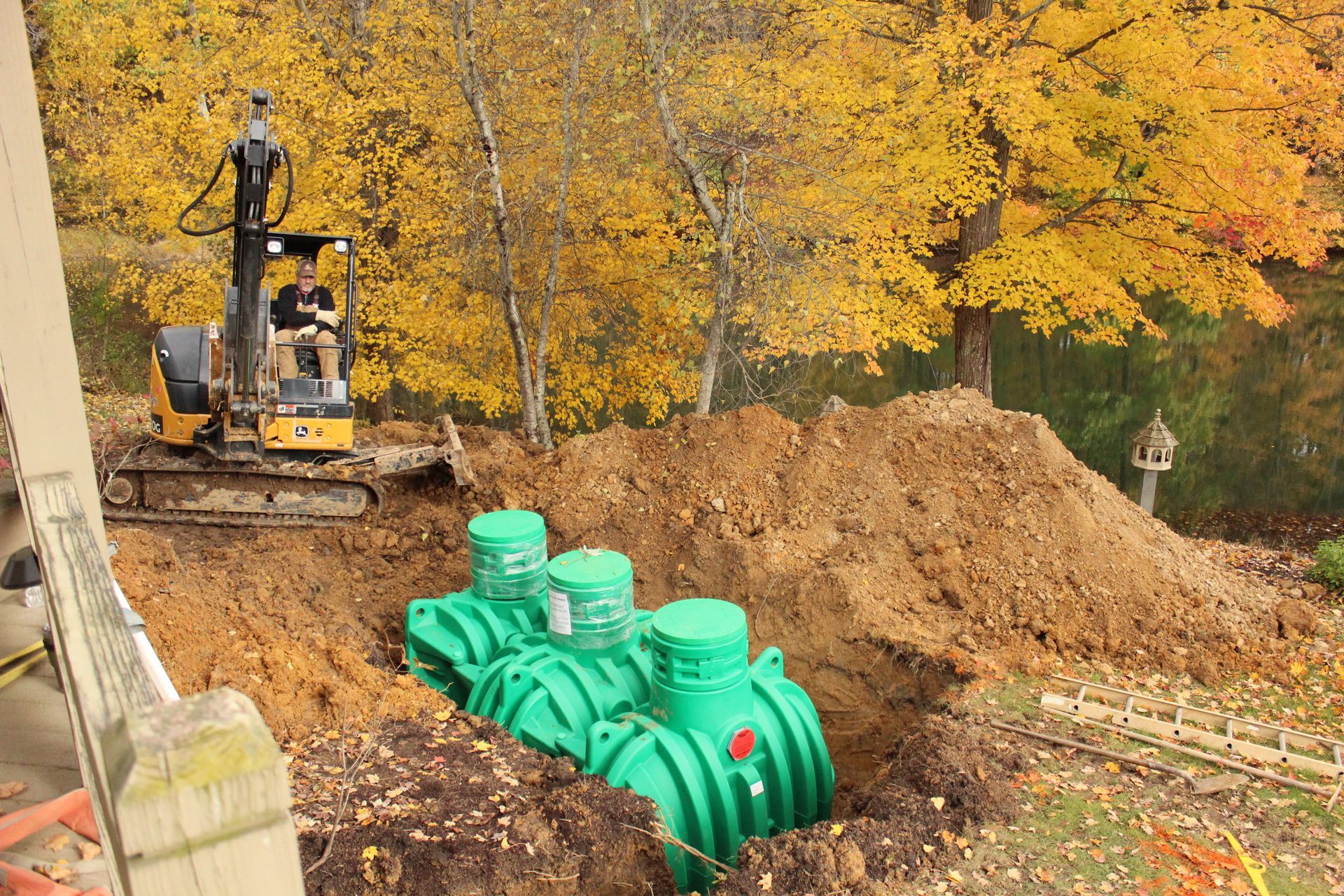
By Pamela Brigante
•
20 Apr, 2023
As the snow melts away and the flowers begin to bloom, spring is a time of renewal and rejuvenation. While many of us focus on spring cleaning our homes, it's important not to forget about the maintenance of our septic systems . With a little TLC, you can keep your septic system functioning properly and prevent costly repairs down the line. Check out some tips on how to keep your septic system clean and well-maintained this spring. Pump Your Tank Regularly One of the most important things you can do to keep your septic system in good working order is to have it pumped regularly. This will help prevent backups and ensure that your system is functioning at its best. The frequency of pumping will depend on the size of your tank and the number of people in your household, but in general, it is recommended that you have your tank pumped every 3-5 years. Check for Leaks Leaks can be a major problem for septic systems, as they can cause wastewater to seep into the ground and contaminate the surrounding soil and water supply. To prevent this from happening, it's important to regularly check your system for leaks. Look for signs such as soggy areas in your yard, foul odors, or slow drains in your home. If you suspect a leak, call a professional septic service immediately to have it repaired . Use Septic-Safe Cleaning Products The chemicals found in many household cleaning products can be harmful to your septic system, as they can kill the beneficial bacteria that help break down waste. To prevent this from happening, use septic-safe cleaning products that are specifically designed for use with septic systems. These products are formulated to be gentle on your system while still providing effective cleaning power. Always read the labels of the products before using them or give us a call to inquire about the product first. Be Mindful of Water Usage Excessive water usage can overload your septic system and cause backups. To prevent this from happening, be mindful of your water usage. Fix leaky faucets and toilets, take shorter showers, and spread out laundry loads over the course of the week rather than doing them all in one day. You can also install low-flow showerheads and toilets to help reduce water usage. Spring is the perfect time to give your septic system a little TLC. By following these tips, you can keep your system functioning properly and prevent costly repairs down the line. Remember to pump your tank regularly, check for leaks, use septic-safe cleaning products, and be mindful of your water usage. With a little effort, you can ensure that your septic system is in top condition and ready to handle whatever the spring season throws its way. Reach out to our team at Excavating New Jersey LLC if your septic system needs to be repaired or if you need a completely new septic system. We offer upfront, flat-rate pricing and $1000 off of new septic system for residents and businesses in Morris and Sussex county.
Location
406 County Rd 565
Wantage, NJ 07461
Excavatingnj@gmail.com
Call
973-702-0655
Location
406 County Rd 565, Wantage, NJ 07461
Excavatingnj@gmail.com
Call
973-702-0655
© 2024
All Rights Reserved | Excavating New Jersey LLC | Privacy Policy

